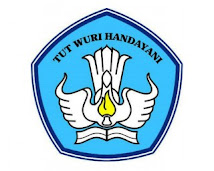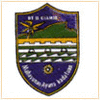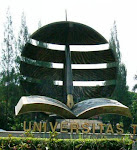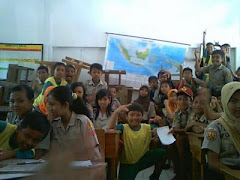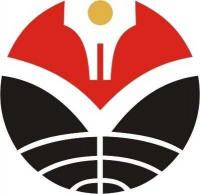- What is the Cambridge Primary Curriculum Framework?
- The Cambridge International Primary Programme is comprised of several elements, the core of which is the Cambridge Primary Curriculum Framework. This framework provides the learning goals for each stage. It is advisable to refer to it as you progress to confirm which stage you believe your students to be working at. The diagnostic feedback provided by the analysis software refers to the learning objectives listed in the Curriculum Framework.
- Top of page
- What are the benefits of the Primary Programme?
- Foundation for secondary education. The Primary Programme aids identification of a student’s strengths and weaknesses and can be used to support learning and development. The Primary Programme progresses students seamlessly into middle years curricula, such as Cambridge Checkpoint and IGCSE.
External benchmark. The Primary Programme provides teachers with an external benchmark to inform their teaching and easily measure students’ progress over time. It also allows detailed, structured reporting to parents.
International curriculum. Appropriate and relevant internationally, the Primary Programme has been designed to be culturally sensitive. It includes top–quality teaching and assessment resources appropriate for teaching and learning in local and international schools. The structure of the Programme encourages teachers to use their own materials, bringing in local, national and international examples.
Flexibility. The Primary Programme complements a range of teaching methods and curricula. No part of the programme is compulsory and Centres are at liberty to choose the parts that best suit their situation. - Top of page
- What makes the Cambridge International Primary Programme ‘international’?
- The Cambridge International Primary Programme has been designed specifically with international schools in mind. The Curriculum Framework provides a solid foundation in mathematics, English and science that is relevant and useful to students and teachers across the world. The assessment materials have been developed carefully to ensure that there is no bias resulting from question context or colloquial language and the Programme structure allows full flexibility for teachers to include resources that are directly relevant to their students and the local context. Care has been taken at the question writing phase to use short, simple sentences without unduly complex language or grammar to enable access for children who may not speak English as their mother tongue.
- Top of page
- How does the Primary Programme reflect local and national content requirements?
- The Cambridge International Primary Programme provides a framework for teaching the core subjects of English, mathematics and science. The English and Mathematics Curriculum Frameworks comprise a series of progressive objectives that describe development of essential literacy and numeracy skills but allow for use of local and national content and cross–subject activities. The Science Primary Curriculum Framework provides a structure for developing scientific enquiry, i.e. teaching students to think like scientists, as well as suggested topics for content–based learning. Schools are at liberty to choose whether they want to teach some or all of the content and can decide what order to teach it in.
Schools could, in fact, continue to teach their local programmes alongside the Cambridge Primary Programme and use the Cambridge assessments as a valid and useful tool, provided that the learning objectives of the Cambridge Programme are adequately covered. - Top of page
- Our Centre follows the National Curriculum for schools in England and Wales. Why should we change to the Cambridge International Primary Programme?
- If your Centre follows the National Curriculum used in England and Wales, the Cambridge International Primary Programme could provide a valuable addition to the provision in your school. The Cambridge Primary Programme provides Progression Tests for in–school use for Stages 3–8 in mathematics and English, and Stages 6–8 in science (Stage 3 is equivalent to Year 3 in the UK). The Progression Tests can be used to track your students’ progress compared with a cohort of students in international schools around the world, and the diagnostic software allows you to produce reports on students’ strengths and weaknesses, to feed back into learning. In addition, membership of the Primary Programme includes entries to the Cambridge International Primary Achievement Test, which is available in English, mathematics and science at the end of Stage 6 (Key Stage 2). The Achievement Tests are moderated in Cambridge and all students receive a certificate from CIE.
The Cambridge International Primary Programme has a similar model and covers similar material to the National Curriculum, which allows you to administer the two curricula alongside one another or just use the Cambridge curriculum with the knowledge that students would easily be able to transfer back to schools in the UK. Following the National Curriculum would provide students with the knowledge and skills they require to succeed in the Cambridge tests; similarly, following the Cambridge International Primary Programme would provide students with the foundations they need to take UK Key Stage tests.
- Top of page
- Does our school have to follow the Cambridge Primary Curriculum Framework to use the Cambridge Primary Tests?
- No. A Centre does have to be a member of the Cambridge International Primary Programme to enter the Cambridge Primary Achievement Test but does not have to rigidly follow the Curriculum Framework. The tests are designed to measure development of literacy and numeracy and, as such, can be used alongside any curriculum, whether subject– or topic–based, provided the learning objectives are sufficiently close to those listed in the Cambridge Primary Curriculum Framework.
- Top of page
- At what age should children start following the Primary Programme?
- The Primary Programme is organised into six Stages, each of which represents a year of primary education. Stage 1 is the first year of primary school, when children are approximately 5 years old, and stage 6 is the final year, during which children reach their 11th birthday. The Curriculum Framework documents for English and mathematics provide learning objectives for stages 1–6, while science covers stages 3–6. However, in some educational contexts it may be appropriate to introduce the stages at slightly different ages or to expand/contract some stages so that they take more/less than a year to complete.
- Top of page
- How does the Cambridge International Primary Programme relate to the National Curriculum in England?
- The Cambridge Primary Curriculum Framework has its roots in The National Curriculum but has been developed specifically for education internationally. This makes it an ideal choice for international schools because it is based on sound educational principles and tried and tested methodology. This means that schools can feel confident that they are using tested best practices whether their students move on to a school offering a local, British or international programme of study.
- Top of page
- What are the Primary Progression Tests?
- The Cambridge Primary Progression Tests are a series of tests, from Stages 3 to 6, which can be used within a school to monitor progress of individuals and classes of students. They can be used to provide diagnostic feedback which can inform further teaching and learning, or can be used for reporting purposes. They can also be used to assess the performance of the students against an international benchmark.
- Top of page
- What is the Primary Achievement Test?
- The Cambridge Primary Achievement Test provides a summative measure of the student’s learning during the primary phase and is intended for students at the end of their final year of primary schooling. The tests are written with international schools in mind in that they are carefully designed to avoid offensive and confusing material. They are written for students who are proficient in English, but they avoid the use of colloquial language and strongly British expressions and contexts. They are suitable for students who have been taught in English, but for whom English is not necessarily their first language – that is, the tests are designed to be accessible and, for science and mathematics, the tests aim to assess skills and knowledge without penalising for language. However, the same high standards are expected regardless of the mother tongue of the student.
- Top of page
- Where can I see examples of the types of questions used in the Primary Progression and Achievement Tests?
- Examples of the types of questions used in both the Cambridge Primary Progression and Achievement Tests are available to view on this website under the test section.
- Top of page
- What resources does CIE publish in support of the Primary Programme?
- There are a variety of methods of support offered for centres and teachers enrolled on the Primary Programme:
- Cambridge Primary teacher support website: The website includes Schemes of Work, a discussion group and Progression Tests (tests, mark schemes and test analysis software).
- Classroom Activities for the Cambridge International Primary Programme. These books are available in English, mathematics and science. Copies of the Classroom Activities can be ordered from CIE Publications.
- Planning the Effective Delivery of the Cambridge International Primary Programme booklet. This booklet has been produced to provide support for teachers as they implement the Cambridge International Primary Programme. It will help teachers to plan from the outset and aid in the continued smooth running of the Programme within their school. It is designed to be either read from cover–to–cover or as a reference document to follow up on particular issues.
- Top of page
- What other materials does CIE recommend to support delivery of the Primary Programme?
- The following materials have been approved by CIE for use to support the delivery of the Primary Curriculum Framework in English, mathematics and science. The materials include printed and electronic resources for both students and teachers. They have all been thoroughly reviewed alongside the Primary Curriculum Framework documents for English, mathematics and science to assess their suitability.
Subject Title of Course Publisher URL English Oxford Reading Tree (for Stages 1 to 2) Oxford University Press www.oup.com Quest Language Programme (for stages 3 to 6) Oxford University Press www.oup.com Mathematics New Heinemann Maths Harcourt Education www.myprimary.co.uk Science Explore Science Harcourt Education www.myprimary.co.uk - Top of page
- Is there training available to support the Primary Programme?
- CIE plan to extend their teacher professional development services to the Primary Programme. The intention is to make some training available online and some available on a face-to-face basis based on regional demand. These two approaches will be complementary. As soon as the programmes are finalised we will be advertising them here on CIE Online, both within this section and also within the training section.
- Top of page
- What does ‘suitable facilities’ mean?
- Suitable facilities, resources and staff could be defined overall as providing:
- A positive, supportive and inclusive learning environment that enables all students to achieve their full potential and to progress through the learning objectives as set out in the Cambridge International Primary Programme
- A dedicated teaching space or classroom for each year group, and suitable resources available to support the learning set out in the Cambridge International Primary Programme and broader educational outcomes (books, libraries, computers, art and craft rooms, science labs or demonstration areas)
- Teachers with recognised qualifications or previous experience
If prospective centres have queries about the suitability of their facilities and resources they are welcome to contact the Centre Support team via international@ucles.org.uk to discuss their concerns. - Top of page
- We are already a Cambridge International Centre. Why do we have to pay for the Primary Programme separately?
- We have made the Cambridge Primary Curriculum Framework freely available to all our Cambridge International Centres. However, only Cambridge International Primary Centres that have paid their membership fees can access the full Programme materials including the progression tests and schemes of work. The Programme membership fees also include entries for the Cambridge International Achievement Tests in English, maths and science for students in their final year of primary schooling.
- Top of page
- Is there training available to support the Primary Programme?
- CIE plan to extend their teacher professional development services to the Primary Programme. The intention is to make some training available online and some available on a face–to–face basis based on regional demand. These two approaches will be complementary. As soon as the programmes are finalised we will be advertising them here on CIE Online, both within this section and also within the training section.
- Top of page


